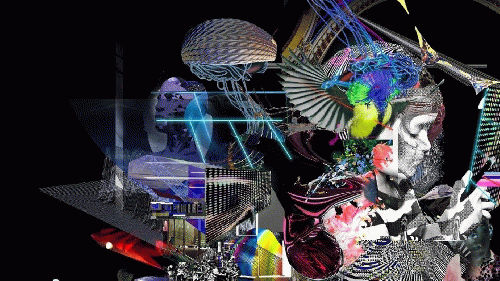PRESENTATION: I Sing the Body Electric: Human-Machine Interactions at the Frontier of Artificial Intelligence in the Making of Music
by John Kendall Hawkins
I have been doing research in the area of the future of human consciousness in the era of AI. This has reacquainted me with areas of philosophical interest that I have neglected for quite some time -- such as the ever-vexing Mind-Body problem, existential angst and nausea, and purpose in a Godless world. I began to recall my brief play among engineers at RPI in Troy, NY, where I began my new mental career in phenomenology. I've been at it ever since, immersed in interpenetrations of mind. Trying to raise a family full of peace and quiet and curiosity about the world and beyond.
Anyway, I was recently invited to make a presentation at the Australasian Computer Music Conference 2023, which took place last week. It was a gathering meant to tout the latest technological gadgets, techniques, and thinking about how musicians and computers are developing a closer relationship. The conference theme was ElectroMUSE. The programme tells us:
The Muse of Ancient Greek mythology are nine goddesses who preside over the arts and science and were the source of inspirational fire for the artist. To muse on something is to absorb in thought and to deeply reflect. ACMC2023 will absorb participants in thinking deeply about music and its relationship to all things technological, digital, and electronic. We will take inspiration from the technological muse of our age and engage with an array of creative processes and musical outputs throughout the event.
So, due to my research in a nearby musing neighborhood (i.e., AI development), I was offered and accepted a chance to present some off-cuts of my thinking on the subject. I say "off-cuts" because, originally my presentation, as with many of the others, was to be a bullet-point highlight of an expected peer-reviewed paper I was working on (and still am) at the time of the offer. The technical magazine it was to appear in refused to consider submissions beyond their deadline. My inviter, an organizer of the conference, had expressed enthusiasm for my ideas and suggested that I present anyway, with just my naked Abstract, and some Powerpoint slides. The only caveat was that I needed to keep my presentation to about 15 minutes (with 5 minutes set aside for questions). I stepped up to the plate like my boyhood Red Sox hero Tony Conigliaro ready to swing.
Here's my Abstract, followed by the Presentation:
The symbiotic relationship between human creators and so-called computational creativity systems has grown exponentially over the last few decades. Where once machines were seen as merely tools, they are now seen by many artists as collaborators and co-producers. Recent developments in generative AI have primarily focussed on apps for textual and image production, such as ChatGP and DALL-E 2. But there is also a growing array of digital AI tools to help a human creator produce music in ways and means never before even imagined. In this paper, I consider a small sample of computational tools available for making music: Google's MusicLM that turns humming or singing into musical notation; Lango Rhythm which converts text directly into music; Bot Dylan, which generates original folk songs; AIs that can finish where classical composers left off -- Schubert's "Unfinished" Symphony and Tchaikovsky's abandoned 7th Symphony; AIs that create new symphonies -- Beethoven's 10th -- or an endless string of new works by Bach. These AI apps raise important new questions about ethics, consciousness and the creative process, which I address in this paper. I will argue that despite quite impressive developments in the technology that supports computational creativity AIs still fall short of the "Turing Test" of producing autonomous human-like creations. Nevertheless, I will add that the current direction of the symbiosis is healthy.
Presentation:
#####
As I indicate in my slides at the end, this production uses several voices, and all of them are AI-generated, including my own cloned voice at the end. Dunno why, thought it'd be a hoot. Some of the images are AI too. In any case, no AI were hurt in the making of this filim.





